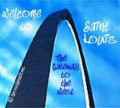Safe Highway Driving
Don't Be A Fatality
According to the Fatality Analysis Reporting System Encyclopedia, on average in the United States about 55,000 fatal traffic accidents occur annually. Of these, about 23,000 involve passenger cars, about 22,000 involve light trucks, about 4,500 involve large trucks, around 5,300 involve motorcycles, and less than 300 involve busses. Therefore you can greatly increase your odds of surviving highway travel by simply leaving your car at home and taking the bus. However, if taking the bus is not an option, here are some tips to help you arrive safely.
Speed Kills
According to Smartmotorist.com, 95% of traffic accidents occur because of driver behavior, and the most dangerous behavior by far is excessive speed. In today's cars, it is easy to have a false sense of confidence in one's ability to stop in time when in reality the laws of physics have not changed. If you are driving at 30 mph and there is a pedestrian in the crosswalk 45 feet away, you will be able to stop. If you are driving at 35 mph, you will not be able to stop. It's that simple. To avoid causing or being a fatality, reduce speed.

Road Rage
Road rage that results in use of a car as weapon or physical confrontation is a criminal offense. Aggressive driving may or may not be a moving violation, but in every case it is behavior that causes accidents. In addition to speeding, aggressive driving behaviors as listed by the New York State Police include:
- Tailgating
- Frequent or unsafe lane changes
- Failure to signal
- Failure to yield right of way
- Disregarding traffic controls
- Impaired driving
If you would like to avoid possible death, injury, damage to your vehicle, or an inadvertent appearance on reality television, drive defensively and free of impairments such as alcohol or other judgement-impairing substances.
Road Hazards
Many accidents occur when difficult road conditions such as rain, ice and snow, or road construction are present, but almost never separately from the road rage behaviors described above. Therefore, if you remember to slow down even more than you think you should, use your turn signals even more religiously, and generally drive even more defensively than usual, you will greatly increase your chances of getting through these conditions unscathed.
One factor in adverse weather conditions is visibility. A driver must be able to see clearly to react in time to changing conditions. When driving in poor visibility conditions it is important to increase the space between your vehicle and the vehicle you are following.
Although drivers like to blame accidents on other drivers or driving conditions, only a very small number of accidents occur due to 'acts of God' independent of any driver misbehavior. You can make driving much safer for yourself immediately by taking responsibility for your own behavior.
Mechanical Failure
With today's cars, designed and built as they are under strict government regulation to be as safe as is humanly and finacially feasible, accident due to mechanical failure accounts for a very small number of highway accidents. With redundant braking systems and improved tires, highway accidents due to brake failures or blowouts is a rare occurrence. Nevertheless, it is wise to stay on top of your tire pressure. Know what it should be, and use a tire pressure gauge to make sure it is up to spec. Many cars have the proper pressure printed on a sticker on the driver's door frame; otherwise it can be found in the vehicle owner's manual.
To avoid mechanical failure, one effective strategy is to comply with your vehicle manufacturer's recommended maintenance schedule and follow your car mechanic's advice. If, just prior to mechanical failure you happen to be driving safely, your odds of surviving will be enhanced.
And that new noise - that rattle, squeak, or whine - pay attention to it. Get it checked out by a qualified mechanic. Don't be one of those drivers stuck on the shoulder of the interstate waiting for a tow truck.
Happy Motoring
Statistics show that most accidents occur because of aggressive or inattentive driver behavior. Drive defensively and stay alert and your chances of having an accident decrease. As a side benefit, you will also reduce the stress you experience when you drive. Stress is not good for you. Therefore, defensive, courteous driving is beneficial to you in more than one way.
So why not do it?
© 2008 Tom rubenoff








